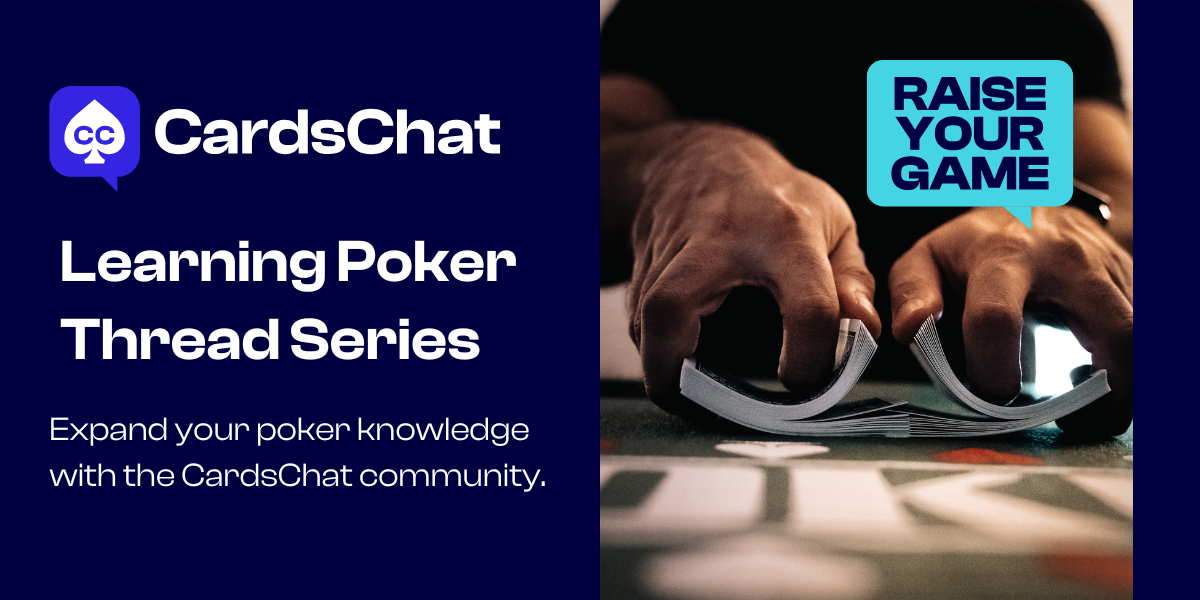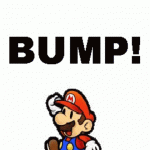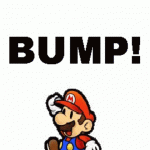CRStals
Moderator
Moderator
Omaha Series Part 4: Hold'em vs PLO - Which is Right for you?
Over the last three articles we have covered some strategy and mechanics of playing Pot Limit Omaha and the high / low version, but now let’s pull back and compare this variant to the most popular poker variant played today: Texas Hold’em, and ask the question, which game is right for you?
Complexity
This should come as no surprise but the simpler of the two games to learn and play is Texas Hold’em and there are several reasons for this:
Which variant is more aggressive? This might be a surprise to some, but the general consensus is that Pot Limit Omaha is more aggressive than Hold’em. The main reason is that you must be more aggressive protecting made hands against so many potential hands that could beat you by the river. The reason that it’s not Hold’em, including no-limit where the all-in is seen as an aggressive move, is because Hold’em is seen as a more strategic game with more deliberate actions, such as slow playing and trapping.
Consider this:
This should be of no shock, but the gamblers will stick to Pot Limit Omaha over Hold’em. The reasons why we have already covered: PLO hands will catch a piece of most flops and being a drawing game and this encourages action and bigger pots. PLO will generally have bigger pots than what you find in the equivalent stakes in NLHE, so the gambler looking for the bigger payday will want to play bigger pots as a result.
The gambler will also not want to sit idle waiting for hands and in NLHE, it is easier to fold more with two cards. However, in PLO being dealt 4 cards, you will almost always have at least one combination of cards that are playable post flop, especially if you are playing high / low, so the gambler will get more action playing PLO because they will feel justified playing more hands.
Conversely, the patient poker player will tend to play Hold’em as it is easier to stick to a hand strength chart and play more premium hands and avoid marginal ones whereas in PLO, even patient poker players will see hands that look playable when they may not be.
All in vs Pot
Some poker players who are overly aggressive will use the all-in to force folds will avoid PLO like the plague because they simply can’t use this tool at all. Pot-sized betting in PLO does not achieve the same results that an all-in does in Hold’em.
At the end of the day though, you must play the game that you feel the most comfortable learning and for most players starting out, this is going to be Hold’em. Do you know anyone who started out playing PLO and transitioned to Hold’em?
What about the pros?
So why do poker pros tend to prefer playing PLO over Hold’em? A lot of the reasons are what we have already covered above:
At the end of the day, you need to find your comfort zone: is it playing 2 card poker with Hold’em or 4 card fun with Pot Limit Omaha or H/L? Hopefully going through this series you have a broader understanding of PLO, why it’s different and what makes it exciting to play or watch.
See all our Learning Poker Thread Series here: CardsChat Learning Poker Thread Series Index
Read Parts 1-3 of our Omaha Series here:

Over the last three articles we have covered some strategy and mechanics of playing Pot Limit Omaha and the high / low version, but now let’s pull back and compare this variant to the most popular poker variant played today: Texas Hold’em, and ask the question, which game is right for you?
Complexity
This should come as no surprise but the simpler of the two games to learn and play is Texas Hold’em and there are several reasons for this:
- Two hole cards versus four hole cards
- Able to use any combination of hole cards and community cards to make your hand
- Limit and no-limit games are easier to calculate bet sizes than pot limit which can be tricky to get correct especially if there has been action in front of you
- Poker on TV typically covers hold’em so it can be easier to learn strategies from pros
- Hold’em is more of a pre-flop game whereas PLO is more of a post flop game, creating more complexity when it comes to hand potential with all of the cards in play.
- Bet calculations are much easier because you don’t need to know how big the pot is, whereas in PLO betting pot you’ll need to know how big the pot is, and playing live this is not always an easy calculation
- With more cards in play you have more information to make decisions without relying on your opponents
- Pure bluffing is not typically seen because of the number of cards in play and it being more difficult to push players off hands, so it can be easier to put your opponents on a range with the additional information you have
- Position is so much more important than in Hold’em, so playing hands in position and not out of position will make the game easier for players
Which variant is more aggressive? This might be a surprise to some, but the general consensus is that Pot Limit Omaha is more aggressive than Hold’em. The main reason is that you must be more aggressive protecting made hands against so many potential hands that could beat you by the river. The reason that it’s not Hold’em, including no-limit where the all-in is seen as an aggressive move, is because Hold’em is seen as a more strategic game with more deliberate actions, such as slow playing and trapping.
Consider this:
- You have top set on the flop in PLO but you are against flush and straight draws. You are not likely to play this slow, but rather betting large to discourage players to call and try and hit their draws on later streets, and it also builds the pot knowing you probably are getting called if the draw doesn’t get there.
- In Hold’em, top set is such an incredibly powerful hand, playing it fast and aggressive will generally not yield the biggest pot as you will illicit more folds than calls with the limited hands available to make.
This should be of no shock, but the gamblers will stick to Pot Limit Omaha over Hold’em. The reasons why we have already covered: PLO hands will catch a piece of most flops and being a drawing game and this encourages action and bigger pots. PLO will generally have bigger pots than what you find in the equivalent stakes in NLHE, so the gambler looking for the bigger payday will want to play bigger pots as a result.
The gambler will also not want to sit idle waiting for hands and in NLHE, it is easier to fold more with two cards. However, in PLO being dealt 4 cards, you will almost always have at least one combination of cards that are playable post flop, especially if you are playing high / low, so the gambler will get more action playing PLO because they will feel justified playing more hands.
Conversely, the patient poker player will tend to play Hold’em as it is easier to stick to a hand strength chart and play more premium hands and avoid marginal ones whereas in PLO, even patient poker players will see hands that look playable when they may not be.
All in vs Pot
Some poker players who are overly aggressive will use the all-in to force folds will avoid PLO like the plague because they simply can’t use this tool at all. Pot-sized betting in PLO does not achieve the same results that an all-in does in Hold’em.
At the end of the day though, you must play the game that you feel the most comfortable learning and for most players starting out, this is going to be Hold’em. Do you know anyone who started out playing PLO and transitioned to Hold’em?
What about the pros?
So why do poker pros tend to prefer playing PLO over Hold’em? A lot of the reasons are what we have already covered above:
- More Action – Poker pros cannot make a living off folding hands, and cash PLO can offer much more action than Hold’em
- Bigger Pots – Pot Limit Omaha is much more complex than Hold’em which tends to lead to higher skilled players playing versus less experienced and amateurs. This may seem counter-intuitive, however poker pros playing against other poker pros will lead to playing at higher stakes, and a bigger potential payday
- More Variance – Some poker pros love to gamble, and PLO tends to be more of a gambler’s game than Hold’em
- Bigger Edge – The additional 2 cards in your hand plus the combinations needed to make and read hands is seen as an advantage for seasoned pros, as well as the possibility of scooping pots against players who chase down non-nutted draws and dominated made hands.
- Patrick Antonius v Viktor Blom - $1.356 Million
- Phil Ivey v Viktor Blom - $1.127 Million
- Patrick Antonius v Viktor Blom - $878k
- Phil Ivey v Viktor Blom - $832k
- Phil Ivey v Viktor Blom - $827k
- Paul Phua v Tom Dwan - $2.5 Million at 3 Million / 6 Million Wan / $2k / $4k USD
- Tom Dwan v Phil Ivey - $1.1 Million at $1k / $2k w/ $500 ante
- Jamie Gold v Patrik Antonius - $743k at $200 / $400
- Tom Dwan v Antonio Esfandiari - $697k at $200 / $400
- Patrick Antonius v Daniel Negreanu - $575k at $500 / $1000
At the end of the day, you need to find your comfort zone: is it playing 2 card poker with Hold’em or 4 card fun with Pot Limit Omaha or H/L? Hopefully going through this series you have a broader understanding of PLO, why it’s different and what makes it exciting to play or watch.
See all our Learning Poker Thread Series here: CardsChat Learning Poker Thread Series Index
Read Parts 1-3 of our Omaha Series here:
- Omaha Series Part 1: Differences Between Pot Limit Omaha (PLO) and Texas Hold'em
- Omaha Series Part 2: Mechanics of PLO - What you should be thinking about
- Omaha Series Part 3: Pot-Limit Omaha Hi/Lo Unpacked





















